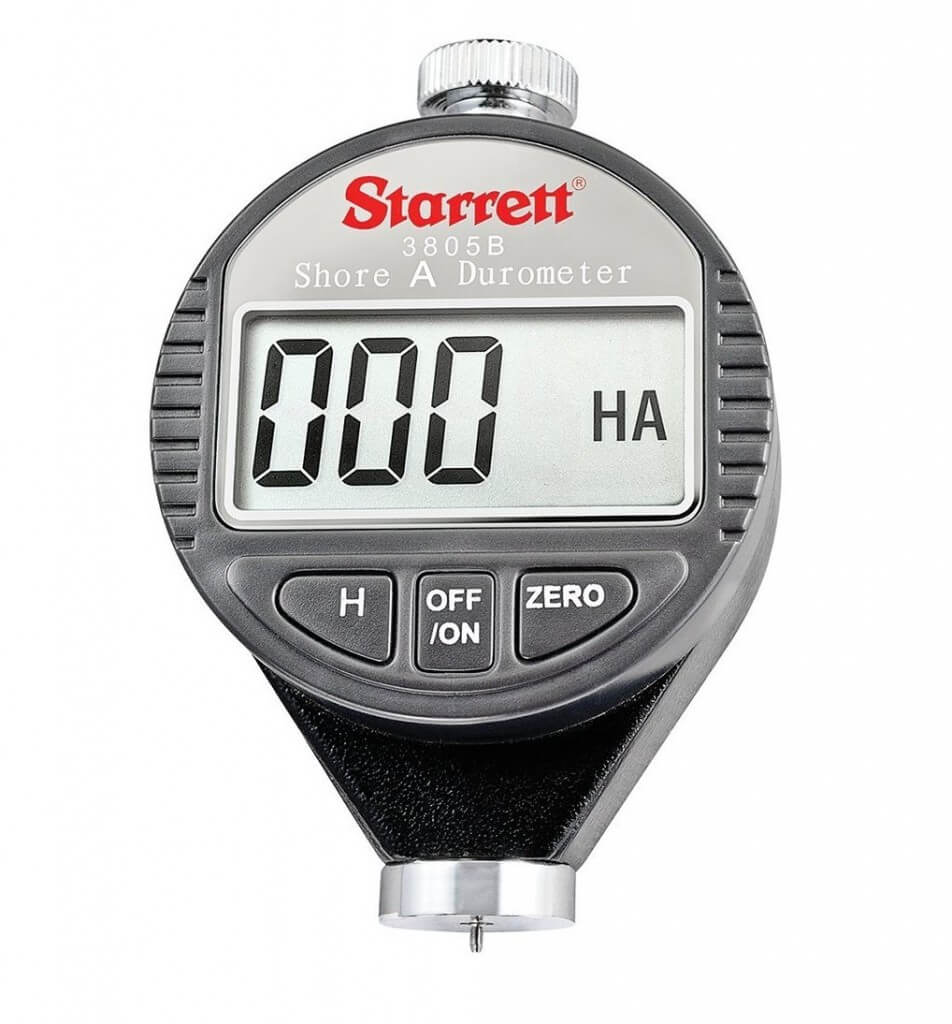A durometer is a device used for testing the hardness of rubber and various plastics. A durometer is basically used to measure a material’s indentation depth produced by a given force on a standardized pressure foot. The depth depends on the duration of the test, the shape of the pressure foot, its viscoelastic properties and the hardness of the material. A basic test requires the application of force in a consistent manner to measure the depth of the indentation without shock. When a timed hardness is reached, force is usually applied for a required amount of time and then read.
Are you having a hard time deciding what durometer you need for your applications? There are various durometers available and you have to understand each one of them very well in order to use the right one for your specific applications. In order to determine the ideal durometer for your applications, you have to understand different durometer scales and the types of materials that fall under each durometer scale. A durometer scale also known as Shore Hardness Scale, comes in different ranges which include Shore 00, Shore A and Shore D. Let’s take a look at these durometer scales and common examples of materials used within each.
Shore 00
These durometer scales range from 10 Shore 00 to 70 Shore 00. Basically, the Shore 00 scales are used for materials that are very soft. Some common examples of materials used within this durometer scale include:
- Low pressure gaskets and seals
- Shock absorption
- Vibration dampening
Shore A
Durometers in this scale range between 10 Shore A to 95 Shore A. These scales are ideal for elastomers which can be hard with little flexibility, medium and slightly flexible, or very soft and flexible. The Shore A scale has a broad range of durometers and materials used in this range are common types of elastomers suited for industrial applications. Most of these materials require durometers in the Shore A scale because of their resistance to abrasions and tearing, and their versatility.
Common examples of materials that you would consider for these durometers range include:
- Rollers, wheels
- Bumpers, feed rollers, metal forming
- Resilient, high coefficient of friction
Shore D
Shore D scales are ideal for rigid plastics and harder materials. Durometers in this scale consist of materials that range from 50 Shore D to 70 Shore D. Common materials in this range include hard or semi-rigid plastics, hard rubber and materials that have a high load bearing capacity. Some common materials used for this range of durometers include:
- Rollers for heavy loads, Forklift tires
- Very tough and resistant to tears
It is important to note that durometers do not reflect the versatility of a material but rather a general indicator of other physical properties.
Before shopping for a durometer, you need to research on the popular durometer brands available in the market. Buy from an experienced trusted retailer who deals in high quality durometers and other precision instruments. If you have little knowledge about durometers, you can ask the retailer to find you a durometer that will fit your applications.





